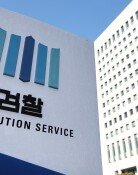Tax Authority Responsible for Four out of 10 Tax Disobedience Cases
Tax Authority Responsible for Four out of 10 Tax Disobedience Cases
Posted August. 01, 2005 06:08,
Businessman Mr. A inherited a house from his father in April 2000.
As a result, Mr. A, who had one house at that time, became an owner of two houses. In 2002, he purchased one more apartment, thereby becoming a three-house holder.
He sold the inherited house in March 2003 and a 10 million won capital gains tax charge was imposed on him.
The tax, however, turned out to be incorrectly calculated because an official who was in charge of this didnt check the Enforcement Decree of the Income Tax, which states that if a one-house owner who inherited another house from others before 2002 sells the inherited house by 2004, the capital gains tax should be exempted. Thus, Mr. A raised a formal objection in court and the calculation of his tax was confirmed to be incorrect.
The number of cases like this has been increasing.
According to an announcement made by the National Tax Service (NTS) and the National Tax Tribunal (NTT) yesterday, the number of citizens disobedience cases over taxation through such channels as formal objections, claims for examination, and claims for judgment has risen from 8,904 in 2000 to 14,973 last yeara 68.2 percent increase.
According to national investigators, out of 60,005 disobedience cases that were raised for four years since 2000, 23,054 cases (38.4 percent) turned out to have incorrect calculations.
This means that in four out of 10 tax disobedience cases, the nations tax authority either imposed undue taxes on citizens or demanded citizens to pay a tax that they didnt have to.
The percentage of disobedience cases that were confirmed to have resulted from officials faults was 39.3 percent last year. Since 2000, the percentage has hovered around 40 percent.
However, Lee Hyeon-dong, manager of the judicial affairs department of the NTS, said, The percentage of tax miscalculation cases overall is approximately 0.6 percent.
In response to this, the NTS, which has punished only officials who didnt charge taxpayers, decided to also punish officials who overcharged taxpayers.
In addition, anybody who believes that their tax is not correctly calculated can raise objections through such channels as formal objections, claims for examination, and claims for judgment.
In terms of formal objections, citizens can make an application to the tax office that sends tax notices, and for the claims for examination, tax payers can make a claim to the examination department of the NTS. These are lawful channels that citizens can use when they disobey an imposed tax.
People, deeming the current related laws and regulations unfair, can make a claim to the NTT for judgment.
In the homepage of the NTS (www.nts.go.kr), clicking on the taxation information service and taxpayer help links one by one, people can check filing procedures and see the forms that are necessary to apply for this procedure.
Eun-Woo Lee libra@donga.com




![“한동훈, 정치생명 걸고 무소속 출마해 평가받는 것 고려할만”[정치를 부탁해]](https://dimg.donga.com/c/138/175/90/1/wps/NEWS/IMAGE/2026/01/19/133186982.1.jpg)


